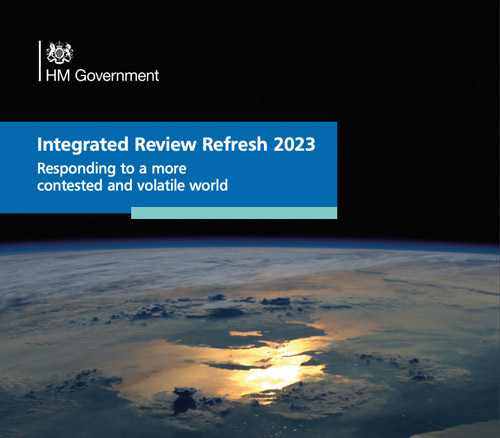The British government released ‘Integrated Review Refresh 2023: Responding to a More Contested and Volatile World’ on March 13, 2023 which updates and builds on the original foreign policy plan outlined in March 2021.
In the foreward to the strategy, UK Prime Minister Rishi Sunak says “China poses an epoch-defining challenge to the type of international order we want to see, both in terms of security and values – and so our approach must evolve. We will work with our partners to engage with Beijing on issues such as climate change. But where there are attempts by the Chinese Communist Party to coerce or create dependencies, we will work closely with others to push back against them. And we are taking new action to protect ourselves, our democracy and our economy at home.”
He says China’s more aggressive policies in the South China Sea and the Taiwan Strait “are threatening to create a world defined by danger, disorder and division – and an international order more favourable to authoritarianism.”
The policy paper states “the CCP is increasingly explicit in its aim to shape a China-centric international order more favourable to its authoritarian system, and pursuing this ambition through a wide-ranging strategy – shaping global governance, in ways that undermine individual rights and freedoms, and pursuing coercive practices.”
The section on UK’s policy towards China states the government has approved 153,708 applications as of December 2022 from Hong Kong British National (Overseas) status holders to live in the UK. It says UK’s China policy will be updated to respond to Beijing’s “continued to disregard universal human rights and its international commitments, from Tibet and Xinjiang to Hong Kong.” The document argues China’s ‘new multilateralism’ is challenging the centrality of human rights and freedoms in the UN system. It has pursued rapid and opaque military modernisation with huge new investments, militarised disputed islands in the South China Sea, and refused to renounce the use of force to achieve its objectives with regard to Taiwan.
Experts and analysts have noted that the new policy stops short of declaring China a threat. Both former Prime Minister Liz Truss and Rishi Sunak during his Conservative Party leadership campaign described China as a threat. The experts also described the revised foreign policy towards China as an effort by the UK government to walk a careful tightrope between protecting national security, human rights and economic prosperity. A major thrust of the new China policy is towards increasing the UK government’s expertise on China.
For More:
New United Kingdom Foreign Policy


